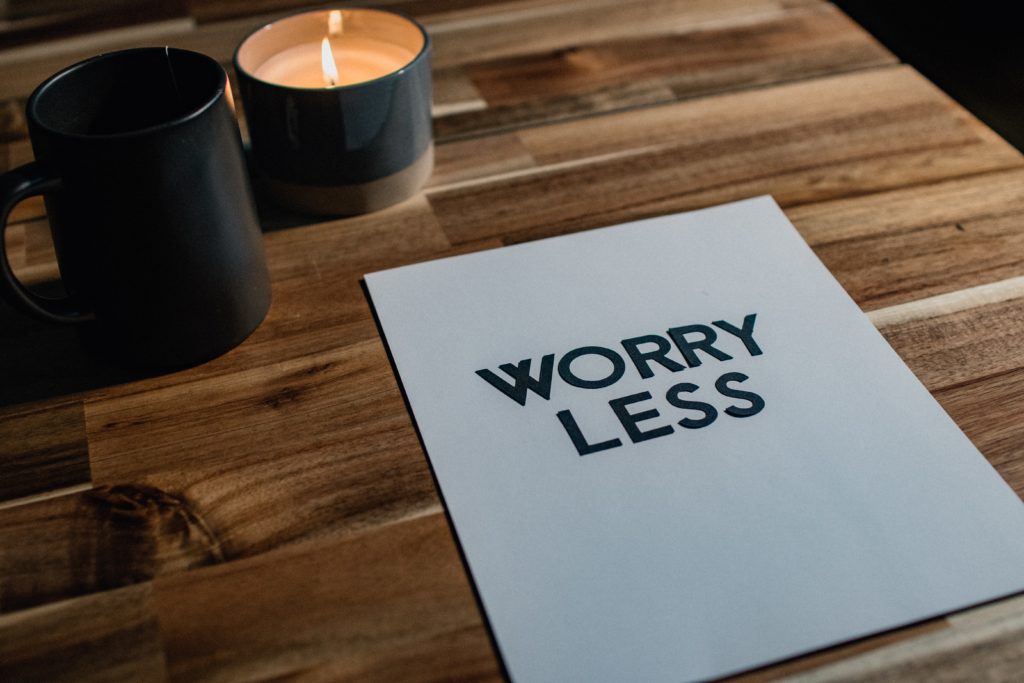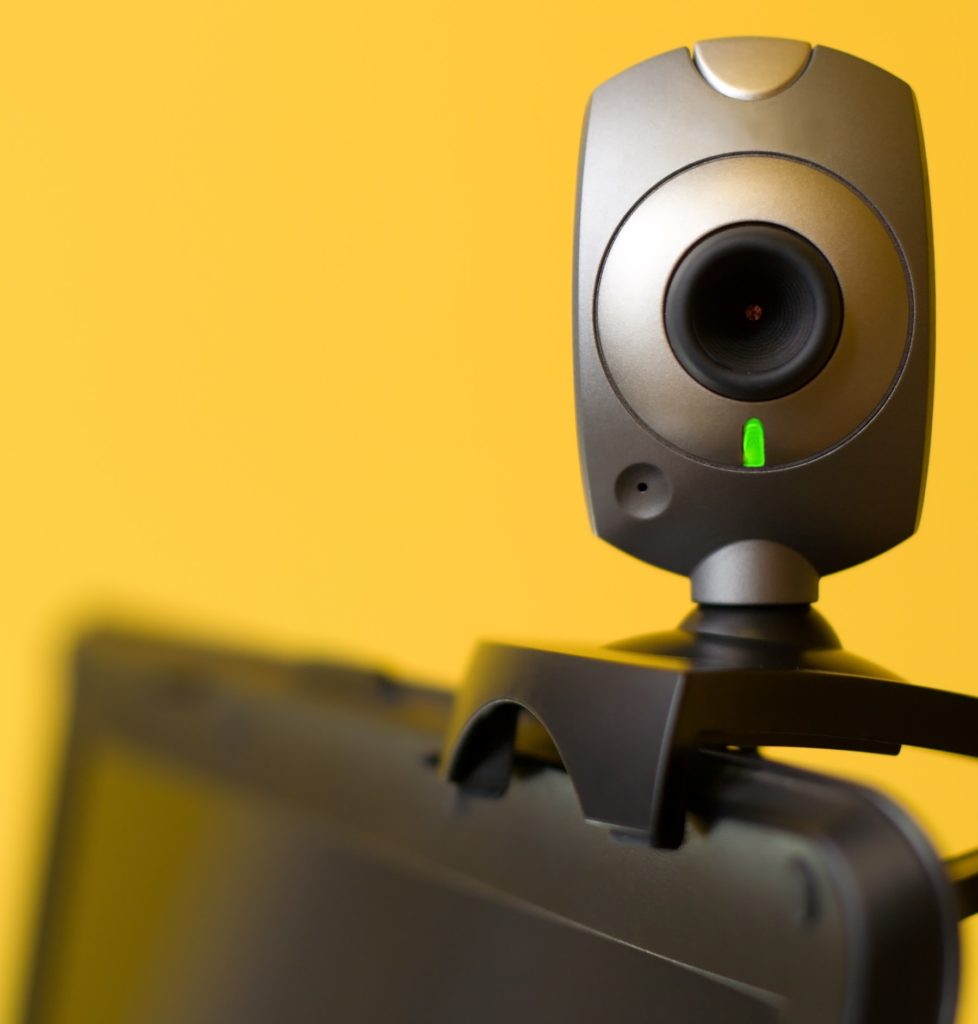Fear Stems from Public Speaking Anxiety
Plenty of things make people scared. They include, in no particular order, spiders, snakes, heights, and clowns. And then there is the fear of public speaking. This common fear is not about the words themselves, but rather the experience of having to say them.
Here at Throughline Group, we’ve discovered that for many presenters this fear quickly disperses once the initial jitters subside. A study conducted by Texas Christian University faculty members Amber N. Finn, Chris Sawyer, and Ralph Behnke found that speaking-related anxiety peaks for most speakers immediately before their speech begins and recedes after the first minute or so of talking.
For others, this fear leads to pervasive and persistent anxiety that results in avoidance of all public speaking situations. This can be a serious hindrance to career and personal growth.
For instance, perhaps you have a great idea but are too scared to bring it up in a meeting. Or you routinely let others take the lead during sales presentations.
In the sections to come, we offer information and resources to help you better understand the reasons this fear can become pervasive and how it manifests itself, as well as how to get over fear of public speaking – and even use it to your advantage.
Is the Fear of Public Speaking a Specific Phobia?

Photo by Elliot Sloman on Unsplash
Not necessarily. Feeling some anxiety – the proverbial “butterflies in the stomach” before or during a talk – does not indicate a fear of public speaking phobia. However, for those people whose fear of public speaking is so distressing and debilitating as to make speaking in front of any group – whether in a social setting, school, or at work – an excruciating experience (or one that is assiduously avoided), then the clinical term for fear of public speaking, glossophobia, could apply.
As with any phobia, glossophobia represents an excessive and unrealistic fear of the object, activity, person, or situation that is triggering the fear. For instance, experiencing increased anxiety before addressing a boisterous, unruly crowd is a rational response. But if the mere thought of offering input to a small group of co-workers about an ongoing project leaves you with paralyzing fear, your response to the situation is irrational.
Phobias often bring on a “fight or flight response” that manifests itself in anxiety-related physical symptoms, such as heart palpitations, nausea, light-headedness, excessive perspiration, and difficulty in breathing. In our work, we occasionally witness a more profound reaction, such as a panic attack. In those more serious cases of fear of public speaking, learning how to overcome public speaking anxiety might require medical or therapeutic remedies in addition to more effective presentation strategies.
How Common is the Fear of Public Speaking?
How common is the fear of public speaking? Put simply – very. Some researchers have estimated that as much as 70 percent of the population experience some fear of public speaking. It’s not necessarily everyone’s top fear — nor is it more feared than death – but it is the most common fear.
For some people, their public speaking anxiety may be associated with a broader social anxiety disorder. Some researchers believe that type of speaking anxiety is prevalent in 15 to 30 percent of the general population.
One survey of nearly 500 respondents in Canada found that a third of the respondents reported excessive anxiety when speaking before a large audience. Among their top worries was “saying something embarrassing,” forgetting what they wanted to say, and struggling to speak. The majority of those who expressed fear said their anxiety around audiences began before the age of 20.
While public speaking anxiety is common, we’ve known many speakers who express distress yet learn how to not be nervous public speaking. They do this by identifying the origins of their fear and finding the best remedies to help them overcome it.

Why Are People Afraid of Public Speaking?
Anxiety is an entirely normal, reflexive, and useful response when we face a difficult or dangerous situation. It’s what makes us highly alert and reactive to threats. When it comes to public speaking, too much can be debilitating, while the right amount can be useful.
The first step in reducing and managing fear is to discover why you are afraid. Everyone develops, experiences, and manifests fear differently. Overcoming fear of public speaking is largely an individual approach.
Fear of public speaking can develop from how you think about yourself, your material, the speaking situation you are in, or your audience – or any combination of factors. Perhaps you have some underlying predispositions that make you more susceptible to anxiety. Maybe fear has set in because of a well-intentioned, but ultimately harmful critique that made you doubt your authentic self.
Here are eight causes of public speaking fear. As you go through the list, you may discover your fear is based on more than one root cause.
A large body of research places public speaking fear within a larger context known as “communication apprehension,” which was introduced as a concept by the late communications researcher and professor James McCroskey in 1970.
Overcome Your Fear of Public Speaking!
Work with our experienced Throughline Group trainers to learn practical tips and strategies to reduce and manage your public speaking anxiety. Sign up for our custom public speaking workshops today!
4 Factors That Contribute to Public Speaking Anxiety
Communication apprehension is anxiety or fear brought on by communicating or even thinking about communicating with another person or a group of people. This fear can be present in personal, professional, or public situations, according to McCroskey. Further, the anxiety or fear can be tempered or turned up by the setting, such as whether it’s formal or informal.
Through his research, he concluded that speaking anxiety is multifaceted and particular to the person. In other words, experiencing discomfort in a fearful situation is largely a universal response, but what makes one person fearful of public speaking may not make another speaker break out in a sweat.
He identified four types of anxiety that contribute to a speaker’s communication apprehension:
- Trait
- Context
- Audience
- Situation
These are not fixed points, but rather a continuum, with some speakers more intensely affected by one type over the other. Additional factors contribute to the unease as well, such as whether you are in an unfamiliar setting or you are covering new material. Your ultimate goal can affect your anxiety levels, too. If a lot is riding on one speech, for instance, it’s entirely normal for the anxiety to ratchet up. (You can read more fully on these concepts here.)
Here’s a closer look at the four types of anxiety:
 Trait
Trait
Do you tend to make decisions quickly or do you take your time making them? Do you prefer the company of a few people or a large crowd? Do you seek novel experiences or prefer familiar haunts? The personality characteristics we’ve developed along the way tend to affect how our psychological and physical reactions to experiences. These personality traits provide a clue to the way we respond to communication across multiple contexts, according to McCroskey. Some speakers may struggle with public speaking because of natural predispositions and learned behaviors.
 Context
Context
You may not worry about speaking in front of a half-dozen members of your work team, but addressing 100 or more people for a formal keynote event is never going to happen. Or, if it does, it will be a grueling experience. It’s not so much the size or who is in the audience, but rather the context that causes anxiety. For instance, you may be a relatively calm speaker until you face a new situation, such as using technology you’ve never used before. Or you shine in informal settings, but fear saying the wrong thing or making a mistake in a more formal setting.
 Audience
Audience
Certain audiences can reduce or boost anxiety for public speakers. Perhaps an audience of colleagues would provide comfort, while strangers would increase your fear. Or vice versa. Researchers have found certain beliefs the speaker holds about audience characteristics, such as perceived similarity, social standing, professional status, and familiarity can influence the speaker’s level of anxiety. The size of the audience can also be a factor. For some, large audiences can be far more daunting than an intimate group. For others, it can be the reverse.
 Situational
Situational
This anxiety tends to describe those moments when conditions come together to create a distinct and uniquely nerve-wracking experience. Maybe a very loud drum circle is under way in the room next to you. Or you face a combative and argumentative speaker from the get-go. Or you must deliver extremely bad news to your board. Even if you are familiar with the audience and that typically eases anxiety and you have a firm grip on your material, some other factor may affect your ability to manage your fear in that situation.
Public speaking anxiety symptoms

Photo by Kelly Sikkema on Unsplash
In working with participants in our online and in-person public speaking training workshops who want to learn how to get over their fear of public speaking, it is surprising how many of them are often off the mark on how apprehensive they look. After a practice speech, they’ll tell us they were a nervous wreck. They are sure their quivering voice, sweaty brow, pounding heart, and trembling hands gave them away. Yet, we were unable to spot any symptoms.
That’s the good news. For many speakers, their worry and anxiety about how they come across to their audience are disproportionate to how they appear – so it becomes a matter of becoming less fearful about the symptoms themselves and tackling the underlying problems that give rise to the anxiety in the first place.
Of course, some speakers experience symptoms that get in the way of giving effective talks. Simply knowing why these symptoms occur is an important first step toward managing them. When your body is confronted with a threat – real or perceived – the natural defense is called a “fight or flight” response. Your body releases hormones, such as adrenaline and cortisol, to prepare you to stay or go.
Here’s a close look at what your fear of public speaking may bring on:
 Trembling and Shaking
Trembling and Shaking
As anxiety rises, your body may tremble and shake in response. Your hands may shake as you sip your water or hold your notes. Your muscles may feel “rubbery” or weak. You may feel light-headed or think you are about to faint. All of this discomfort is alarming, but it’s not necessarily dangerous. It’s a natural physical response to the complex processes taking place within your body to deal with the threat. Often, secondary worry caused by the symptoms themselves can make the shaking continue longer than it’s meant to. The good thing is what seems like a full-on quake to you is typically only a slight tremor that is barely perceptible to your audience.
 Excessive Sweating
Excessive Sweating
As our body temperature rises, sweat keeps us from overheating. As your perspiration evaporates, it cools the body. It’s all very natural. Rising body temperature signals certain sweat glands to start producing sweat. During a stressful event that triggers fear or anxiety, body temperature rises as researchers have found, which signals the body to start sweating as it would during exercise or a hot day. However, in addition, your stress hormones signal different glands to produce sweat as well. Some call it “stress sweat.” This can bring on the sweaty palms, glistening foreheads, and the moisture that pools under your arms and across your back. (Note: This is not the same as hyperhidrosis, a medical condition where your body’s sweat glands overact causing excessive and abnormal perspiration.)
Dry Mouth
If all that trembling, shaking, and excessive sweating isn’t enough, you may also experience a dry, itchy, or sticky feeling in your mouth, known as dry mouth. (The clinical term is xerostomia.) Basically, your salivary glands are not making enough saliva. This makes it difficult for you to speak, or you may experience a sore or dry throat. While it is known that certain health conditions, such as diabetes or stroke, and medications can cause it to occur, researchers have found that stress and anxiety are significant factors, as well. Getting over public speaking anxiety can help ease this symptom, as can a few simple measures. Drink water before your talk and have some handy during your presentation. Also, avoid tobacco, acidic and caffeinated drinks, and alcohol, which can worsen the condition.
Increased Heart Rate
Your heart rate is controlled by your autonomic nervous system, which is in the driver’s seat when it comes to a fight or flight response. Two pathways – sympathetic and parasympathetic – make up that system. The former revs you up; the latter applies the brakes. That cycle helps you get the energy you need to run a mile, for instance, and then reduce your heart rate once you are at rest. That process tends to be gradual. However, when you are faced with a threat – real or perceived – or high-stress situation, such as giving a presentation, that “rev up” can be like going from 0 to 60 mph in a matter of seconds. This is what causes a spike in your heart rate and blood pressure.
Squeaky Voice
As all that adrenaline and cortisol surges through your body, few body processes are spared the effects – including your voice. When you are stressed, the muscles around your voice box, or larynx, can become tense. This can result in a voice that cracks or “squeaks.” Known as muscle tension dysphonia, it affects the quality of your tone. TED Ideas teamed with speech-language pathologist Jackie Gartner-Schmidt to help presenters avoid having voices that sound “shaky, squeaky or choked up.”
How to Overcome Fear of Public Speaking
Unfortunately, no one magic elixir will ease the panic you feel when it comes to your public speaking. Overcoming public speaking anxiety takes a concentrated approach that incorporates several best practices.
We’ve found one of the best ways to get over your fear of public speaking is to effectively organize and deliver your talk. This leads to positive audience feedback and that leads to greater confidence. This can be achieved by being prepared, practicing, and taking public speaking classes. Meanwhile, if your heart is racing, you can calm it through targeted breathing exercises. And, you can get a grip on that anxiety by putting it to better use. Through strategies such as positive self-talk, you can reappraise your fear and turn it into a powerful motivator.
In a recent paper, Alison Wood Brooks of Harvard Business School addresses this dynamic: “Individuals who reappraise their anxious arousal as excitement feel more excited and perform better.” She suggests motivational pep talks or simple reminders to boost the concept of opportunity rather than dread.
She found speakers who opted to redirect that fear performed better than those who tried to will it away and eliminate it.
Here some useful tips to overcome fear of public speaking and learn how to better manage it:
Talk Yourself Up with Positive Self Talk
Fearful speakers tend to allow negative self-talk to derail their presentations before they even get a chance to get off the ground. As they revisit and rehash previous talks, they relive those moments when they failed to connect with their audience or land a key point, or when their mic cut out. When anxiety wins out, we tend to only think about all that can go wrong, rather than all that can go right.
One of the useful tips to overcome the fear of public speaking is to write a new script. Replace negative words with positive dialogue. It’s a process called cognitive restructuring. Instead of saying “I made a mistake,” you tell yourself, “That was a lesson learned.” “Missteps” are just steps (no “mis” needed) in your journey to being a better speaker.

Always Be Prepared
Being prepared is a matter of knowing your material and anticipating your logistical needs for your public speaking engagement.
You build confidence from the start by getting a firm handle on your content. You know what it is you want to say and how you want to say it. Then, whatever delivery method you choose, give yourself time to develop an engaging presentation.
Then there are the logistics. For instance, have you secured the equipment you’ll need and hammered out details with the organizers? Do you have a backup of your presentation on the cloud or portable hard drive, as well as a printout of your talk? Being prepared can alleviate pre-talk jitters, as well as make you better able to handle glitches during your presentation.
Shift Your Mindset
When we ask speakers why they’re anxious, they share concerns that reflect a self-focused perspective. They fear that they will appear flustered or frantic, forget a key point, or lose their place. In each instance, they can ease their fear of public speaking by redirecting their attention to their audience.
Think of the audience as people you already know, which can help to forge a connection. If that proves difficult, here’s a quick mental exercise: Focus on someone in your audience and think about their story. You might say to yourself: “I bet they are wondering how they are going to get through all their to-dos on their do-do list today. So, how can I make sure the next 45 minutes they spend with me matters? How can I help them leave here today with confidence they have the knowledge and tools to implement the strategies I am proposing?”
When you’re busy thinking about how to make someone else’s life better, there’s less time to be consumed with your own fears.
Do Breathing Exercises
When we become anxious, our breath tends to become shallow, and our lungs may feel restricted. This is not an ideal feeling moments before you are about to give a speech. There are, however, breathing techniques for public speaking anxiety that you can employ before your next talk. In their book The Healing Power of the Breath, psychiatrists Richard P. Brown and Patricia L. Gerbarg recommend a technique called “Coherent Breathing.” Here’s one variation:
- Sit upright in a chair and release the tension in your muscles.
- Breathe in through your nose gently and inhale slowly for six seconds. Your belly should expand as you inhale. You can place your hand on your belly to make sure your hand moves outward with your breath.
- Breathe out through your nose gently and exhale slowly for six seconds until you empty your belly of air.
- Continue to use this pattern for 10-15 minutes.
This is but one version of a deep breathing exercise. Do an online search for deep breathing, diaphragmatic breathing, or belly breathing, and pick the one that works for you.

Practice By Yourself
One of the best strategies for managing public speaking anxiety is to practice your speech. This allows you to identify your strengths, work on your weaknesses, and fix trouble spots before your presentation. An effective technique is to videotape yourself. You don’t have to record the full speech. Break it up into manageable segments – 5 to 10 minutes will do. In reviewing your session:
- Assess your nonverbal and verbal delivery.
- Take notes.
- Ask questions. (Did you use too many “umms” and “ahhs?” Were you too quiet? Did you overly rely on your notes instead of making eye contact?)
Then, focus on one or two or areas to improve. When you feel confident with one area move on to the next. As you make incremental improvement, your fear of public speaking is likely to ebb. You can learn more about effective practice sessions here.
Consider Taking Fear of Public Speaking Courses
As McCroskey noted in his research, public speaking apprehension is best viewed on a continuum – not everyone experiences it the same way and for the same reasons. For instance, say you are extroverted around your friends, but become incredibly shy and overwhelmed when it comes to public speaking? The strategies that work for you may not be the best remedy for someone who struggles in all communications settings. That’s why it is important to work with trainers who understand that the course curriculum needs to work for a range of personalities and abilities.
We believe the best public speaking anxiety tips are those that best align with your innate talents, delivery style, and audiences. When it comes to the steps to overcome fear of public speaking, our trainers work with you to identify commonsense techniques and strategies that work best for you.

Effects of Fear of Public Speaking
On Your Professional and Personal Life
In survey after survey, employers rank oral and written communications among the top skills they seek in current and new employees. For those who experience debilitating fear at the thought of speaking to an audience – whether that audience is a half-dozen co-workers or a conference room full of people – this apprehension can have serious consequences on their career advancement. But beyond that, they lose out on their opportunity to share their unique talents, outlook, and expertise with audiences of all sizes.
When you work on your public speaking skills, you invariably improve your overall communication and leadership skills, and that can lead to greater confidence (and more opportunities to show your professional worth).
When you are confident, you are more likely to volunteer to lead that presentation to a potential client. Or, you may become a more efficient communicator and provide concise and targeted answers to your boss. By getting a handle on your nonverbal cues, you can better read your co-workers, supervisors, and potential clients.
When you have the tips to overcome your fear of public speaking, you have the tools to not only carry out an essential business skill, but also improve your personal communications, as well. At that moment you are asked to offer a few words at your parents’ anniversary party, for instance, you won’t have to let fear keep you on the sidelines.
